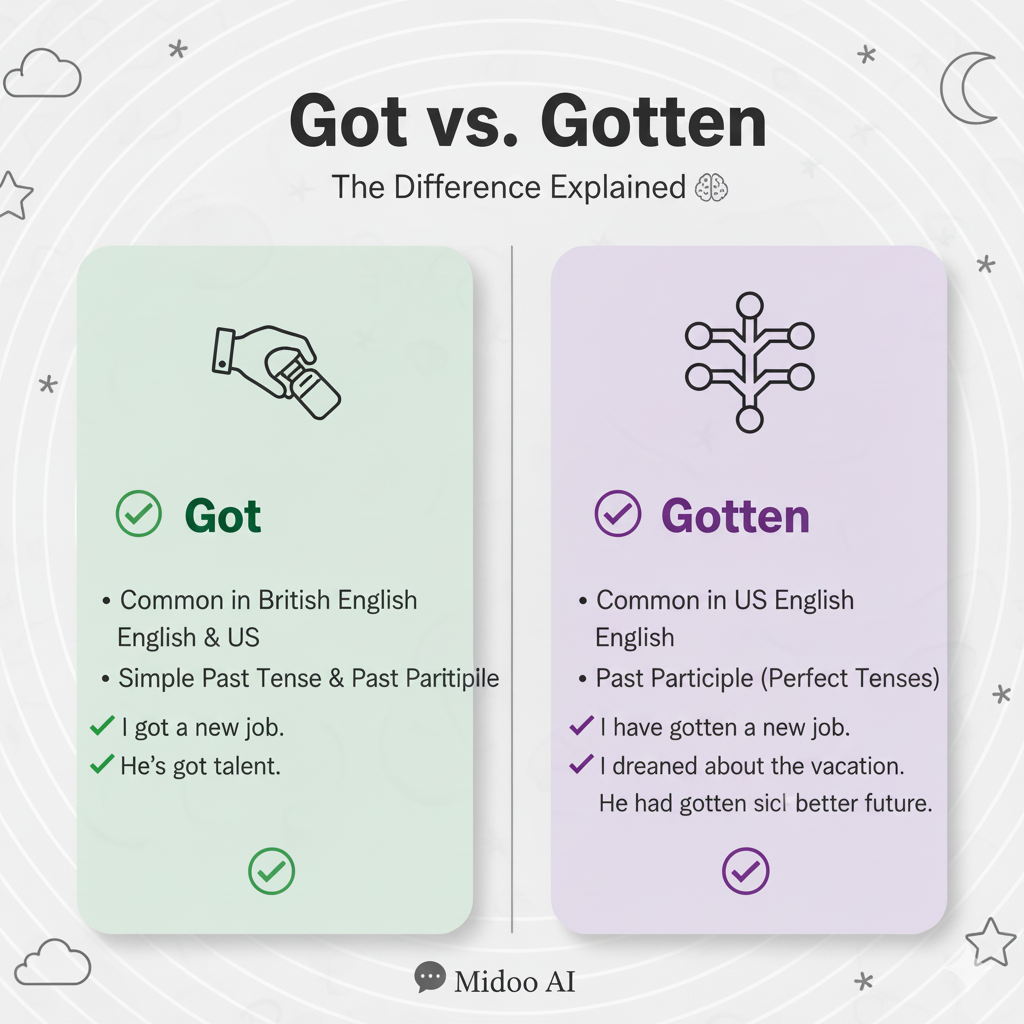Got vs. Gotten: How to Use Them Correctly

At Midoo AI, we often see learners confused about “got” and “gotten”.
They look like the same word, but they aren’t always used the same way.
The truth is: both are correct, but their use depends on the type of English you are using — British or American.
Let’s break this down with simple rules, examples, and tips.
Got — Common in British English 🇬🇧
In British English, “got” is used as the past tense and past participle of “get.”
Examples:
- I got a new phone last week.
- She has got a lot of experience.
- We’ve got plenty of time.
- He got sick after the trip.
- They have got two dogs.
💡 Tip: In British English, just use “got” for everything. It’s simpler and standard.
Gotten — Used in American English 🇺🇸
In American English, “gotten” is often used as the past participle of “get” when it means “to obtain,” “to become,” or “to receive.”
“Got” is still used as the past tense.
Examples:
- I got a new job. ✅ (past tense)
- She has gotten better at English. ✅ (has become)
- We’ve gotten many new followers. ✅ (have received)
- He has gotten tired of this game. ✅ (has become)
- They have gotten permission to leave. ✅ (have obtained)
💡 Tip: In American English, use “got” for past tense, and “gotten” for present perfect forms (after have/has).
Quick Memory Trick
- 🇬🇧 British English → only use got
- 🇺🇸 American English → got (past) + gotten (past participle)
Think: “gotten” got added in America.
FAQ
Q: Is “gotten” wrong in British English?
A: It’s not wrong, but it sounds old-fashioned or American to British ears.
Q: Can I just use “got” all the time?
A: Yes — especially if you write in British English. In American English, try to use “gotten” in perfect tenses.
Q: What about “have got” meaning “have”?
A: In both styles, “have got” means “have” (e.g., I’ve got a car = I have a car).